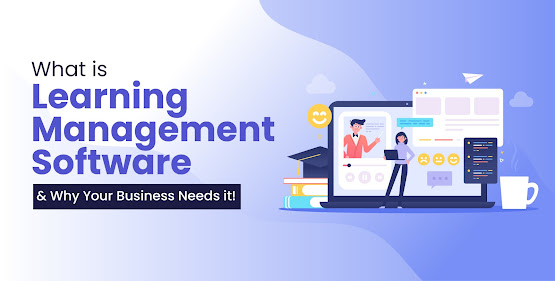During the COVID-19 outbreak, the business world has woken up to the importance of online learning or e-learning for modern businesses working online. With the sudden shift from physical office spaces to remote work, managing employees and delivering them the right job training is an uphill battle for small and top-tier business enterprises.
The advent of learning management software (LMS) emerges as a beacon of opportunity for small and big business owners working online.
The LMS software offers organizations a centralized digital interface where employees can easily access online courses, training materials, and resources from anywhere and anytime. If you're also looking for highly-advanced and reliable LMS software to promote adaptive learning, here are a few things you should know.
In today's article, we'll cover all segments of learning management software that will help you streamline your learning or education-oriented operations at all levels.
What Is A Learning Management System?
First, let's understand what a learning management system means. For this, I have approached my best friend, Google search box; here's what I found!
"The term LMS is the acronym of Learning Management Software for the documentation, administration, reporting, tracking, automation, and delivery of educational courses. "
From educational institutions to online businesses, LMS software has become necessary for learning education.
The Role Of Learning Management System In The Workplace
Here are some core operations that you can cover with learning management software in the workplace:
- Giving job training to new employees
- Giving a tour of the work culture and workforce to new employees
- LMS can be used to organize, secure, and manage training materials, online courses, and reports in one place
Different organizations utilize LMS in different ways. Some used it as a repository, while others used it to help employees understand the organization's work culture. Depending on their role in the organization (software developer, sales, legal), an employee can easily find the training content they need that focuses on their role.
The benefits Of Using A Learning Management System
The LMS works as an administrative workstation for organizations by helping employees to learn at their own pace. With LMS, employees can easily access e-learning approaches; employees can easily access interactive modules at their ease at any time.
Centralized Learning Platform
An LMS is a centralized hub for all learning and training activities. It allows businesses to store, organize, and manage training materials, courses, and resources in one location, making it easily accessible to learners.
Flexible and Convenient Learning
LMS platforms enable learners to access training materials anytime, anywhere, and from any device with an internet connection. This flexibility accommodates various learning styles and allows employees to learn at their own pace, increasing engagement and knowledge retention.
Scalability and Cost-effectiveness
With an LMS, organizations can efficiently scale their training programs to reach many learners. Online courses and modules can be developed once and delivered to multiple employees simultaneously, reducing the need for repetitive in-person training and associated costs.
Tracking and Performance Evaluation
LMS platforms provide robust tracking and reporting features, allowing organizations to monitor learners' progress, completion rates, and performance. This data enables organizations to assess the effectiveness of their training programs and make data-driven decisions for improvement.
Contact us now if you’re looking for the best LMS software in India! We have the best and most reliable LMS software that will cover your learning management operations!




.jpg)

0 Comments